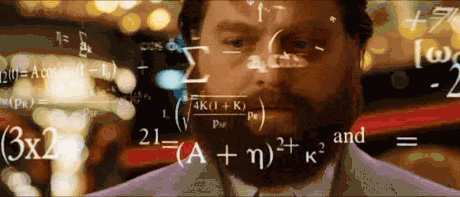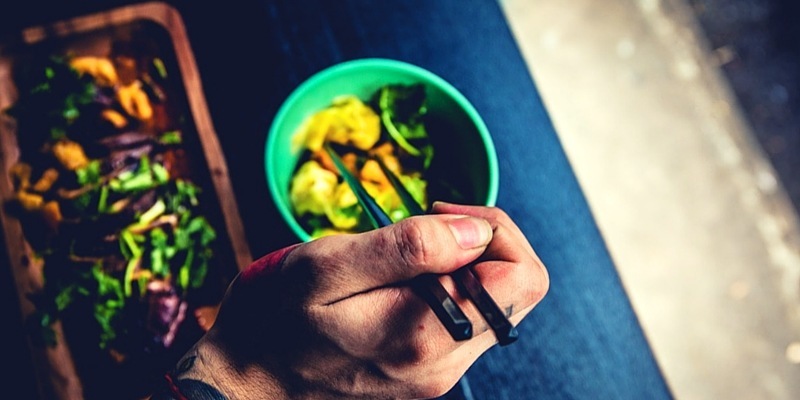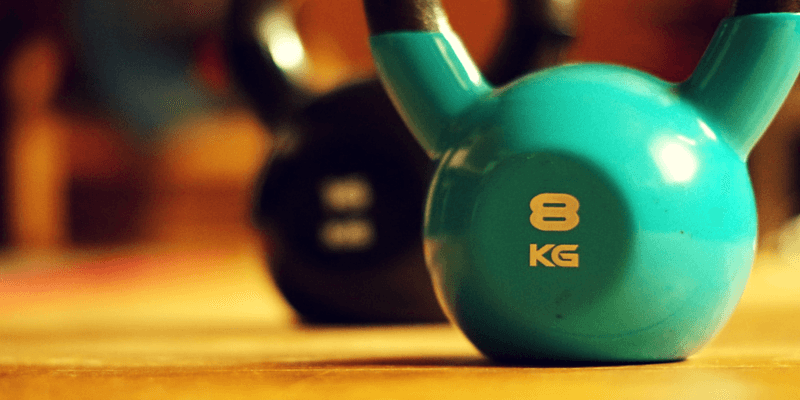“…..and then the 2 eggs were x calories
And the 1/2 cup of berries was x calories…
And then that yogurt was x calories…
And the 4 strips of bacon must have beennx calories… hmmm let me double check that… I think I still have a couple hundred more to go…”
We’ve all been there. Keeping track of every single calorie we consume — trying to not go over a certain amount or trying to eat at least X number to bulk up. The truth is, when it comes to reaching your fitness goals, counting calories might actually be counterproductive never mind enjoyable.
While there are some exceptions (which we’ll cover further below), the average person simply trying to eat healthier to look and feel better or start losing some pounds does NOT need to know the exact number of calories they consume each day.
If this sounds too good to be true read on because we’ll explain why counting calories misses the point of dieting completely.
How Most People Dieting View the Food They Eat
The argument for counting calories is that it’s supposed to help by letting you know exactly how much you’ve eaten so far and how much you still have to go. We even recommended that beginners trying to revamp their diet find their maintenance level and then adjust it up or down 500 calories depending on whether they’re trying to gain or lose weight.
Once you figured out the approximate number of calories you need each day, you started keeping track of every food by looking at the nutrition label, taking note of the serving size, and then doing some quick math to calculate how much you’re eating.
If it didn’t have a label or someone else prepared your food, you googled it and used a site like MyFitnessPal to find the number.
If you got really fancy you’d have a food scale and start weighing your own food. Eventually you tried memorizing the number for each meal or kept a food journal to keep track.
Seems like there should be a better way doesn’t it? Turns out there is. As you’ll soon learn, not all calories are created equal.
And while it’s a good idea to have a ballpark estimate of the amount of food you’re eating, whether you ate 2000 calories today or 2150 will hardly matter in the long run if you aren’t focused on what REALLY matters (hint: it’s not the number of calories).
That said, if it works for you and you’re seeing progress… Great! Keep it up. But here’s where the “calorie game” as we like to call it falls apart.
The Problems With Counting Calories
Most people are notoriously bad at it.
And it turns out the heavier you are, the more likely it is you just aren’t any good at keeping track. One study testing obese folks found that on average they underreported the amount of calories consumed by 47%. These were people who thought they were eating 1200 calories or less per day! The average person underestimates by roughly 30%. Definitely not encouraging numbers.
To be honest this isn’t too surprising. Sometimes you forget what you ate, badly estimated the portion size, or simply couldn’t be bothered recording it. Sometimes you’d rather just forget about that chocolate bar you had earlier rather than acknowledge it ever happened. Okay we’re humans, not calorie counting robots so at least that makes sense.
Food labels aren’t completely accurate.
In fact, legally (in the US at least) the real number of calories can be up to 20% above or below the stated amount. 20%! That means something labeled as 200 might in reality be closer to 240.
And it’s not just foods at the supermarket. One study found that 19% of the meals in restaurant are off by at least 100 calories. To make matters worse, the foods labeled with the least amount of calories (aka the foods people on a diet are most likely to order) were the most likely to be inaccurate. Independent and local chain restaurants were even worse when it came to labeling their meals accurately.
So even if you’re being diligent and keeping track of everything the right way — what good is it if the numbers you’re using are off? In the end you’re basically working with a ballpark estimate anyway.
Keeping track of everything is stressful.
Finding out you already reached your daily limit and it’s only just the afternoon is stressful. “Uh-oh I overate! Wait, I just had a 800 calorie meal but I’m still…. hungry?” One found that just by monitoring the amount of calories we eat, our perceived stress goes up even if we aren’t on a diet.
This discourages healthy eating instead of encouraging it. Stress is something all of us want less of in our lives and counting calories isn’t helping. This effect is amplified if you eat for emotional reasons making matters even worse. It’s that feeling of restriction that it gives us which makes the food we do eat less enjoyable.
It makes eating healthy more complicated.
“Low calorie” isn’t a synonym for healthy. If your food choices are solely determined by how many calories they have to offer you’re prone to substitute healthier choices with low calorie junk food which misses the point of healthy eating entirely.
This is especially true of dieters which according to studies (and common sense) are more sensitive to cues marked on packaging such as “low-calorie” and “low-fat”. Marketers and brands take advantage of these trigger words which short circuit uneducated dieters brains fooling them into thinking “This must be good for me!” and so they ignore more important information like the ingredient list and the actual nutritional content.
Because the biggest issue of all is actually this:
What you eat is way more important than how much.
The proportion of carbs, fats, and protein that makeup your diet is what really matters.
Think of it this way. You could be on a 1800 calorie diet to lose weight but what good is it if all of that comes from carbs or just flat out unhealthy foods like potato chips and ice cream. You could technically be losing weight in the short term but in reality you’re losing the game in the long run because your health will plummet and as that goes so will your attractiveness. After all, the types of foods you eat influences nearly everything like the quality of your skin, hair, teeth, nails and of course body composition.
Calories aren’t everything. Some foods are better than others. We’ve all heard of the term “empty calories” referring to nutritional nightmares like soda. These types of foods and drinks aren’t as satisfying as higher quality calories from healthier sources with a better nutritional profile. Nutrients your body needs that will help regulate your hormones and control your levels of hunger so you don’t end up overeating.
If you make a simple change — start eating more protein (about a gram per pound of bodyweight), start eating more healthy unsaturated fats and less saturated and trans fats, while also keeping your overall carb intake low (the more active you are the more of them you can afford to eat).
We promise it’ll have a much bigger impact on transforming your body than keeping track of every calorie.
By keeping your diet “clean” and focusing on your overall macronutrient partitioning, overeating becomes much harder to do naturally. Eating clean means no fast food, processed foods, junk foods and so on. Eat clean, throw out the food journal and start eating without stressing out about calories.
Exceptions To The Rule
So we went over some of the downsides of counting calories and why it isn’t for everybody. It’s still important to some though and if you fall into one of these three groups then it applies to you and shouldn’t be neglected:
Are you…
- Trying to gain muscle? If you’re bulking you need to be eating enough food to give your muscles the fuel they need to grow. Making sure you’re eating at a caloric surplus (consuming more than you’re expending) is important otherwise you won’t be making gains any time soon. And unless you want to go on a dreamer bulk and start eating everything you lay your eyes on, managing your calories can be beneficial to avoiding unnecessary weight gain aka fat.
- An athlete or bodybuilder? It goes without saying that those who compete at a higher level than the rest of us have special needs to support their training and goals. LeBron James and Jeff Said won’t have the same rules applying to them because they’re outliers and will try to gain every competitive edge they can get.
- Further along the journey than others? The more progress you’ve already made, the more important counting calories becomes. Once you get the newbie gains out of the way and reach a certain point, it becomes much harder to gain or lose any more weight depending on your goals without making a conscious effort to record what you eat. Any gains or weight loss will simply become harder to come by and you have to make sure you’re doing everything you can to reach your goal because it’ll be harder to squeeze out any more results without doing everything you can.
Wrapping Things Up
While counting calories are definitely useful to certain groups of people, if you find it’s not working out too well for you or you’re just beginning your journey to transforming your body into something better, you won’t need to concern yourself with pinpoint accuracy and keeping track of everything.
By just eating the right kinds of foods, you’ll make progress and start seeing real changes to your body. Paying attention to your macros (carbs, fat, and protein) will do more for you than just simply focusing on eating 2000 calories.
Do you have any of your own opinions of counting calories? Let us know what you think.






